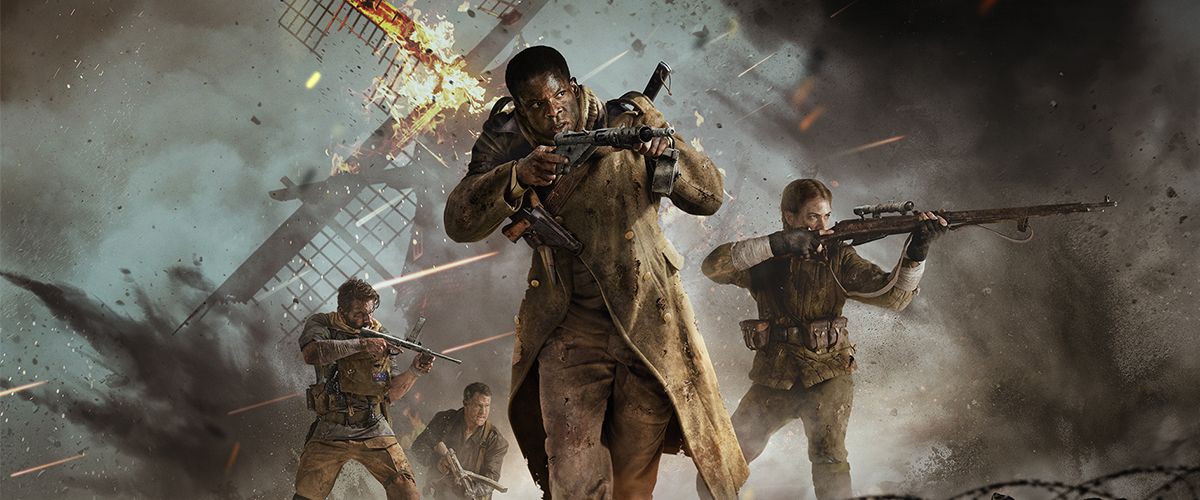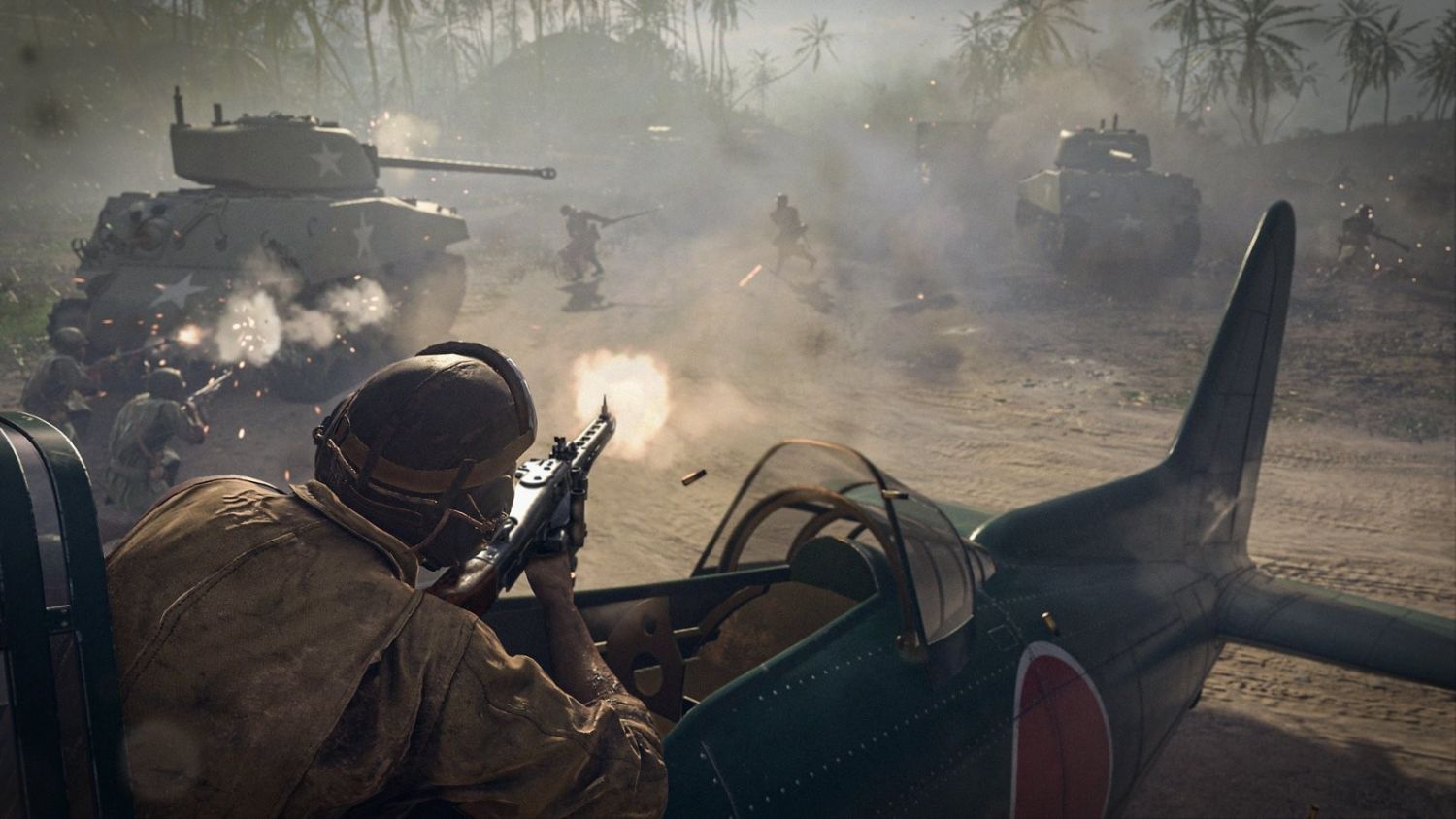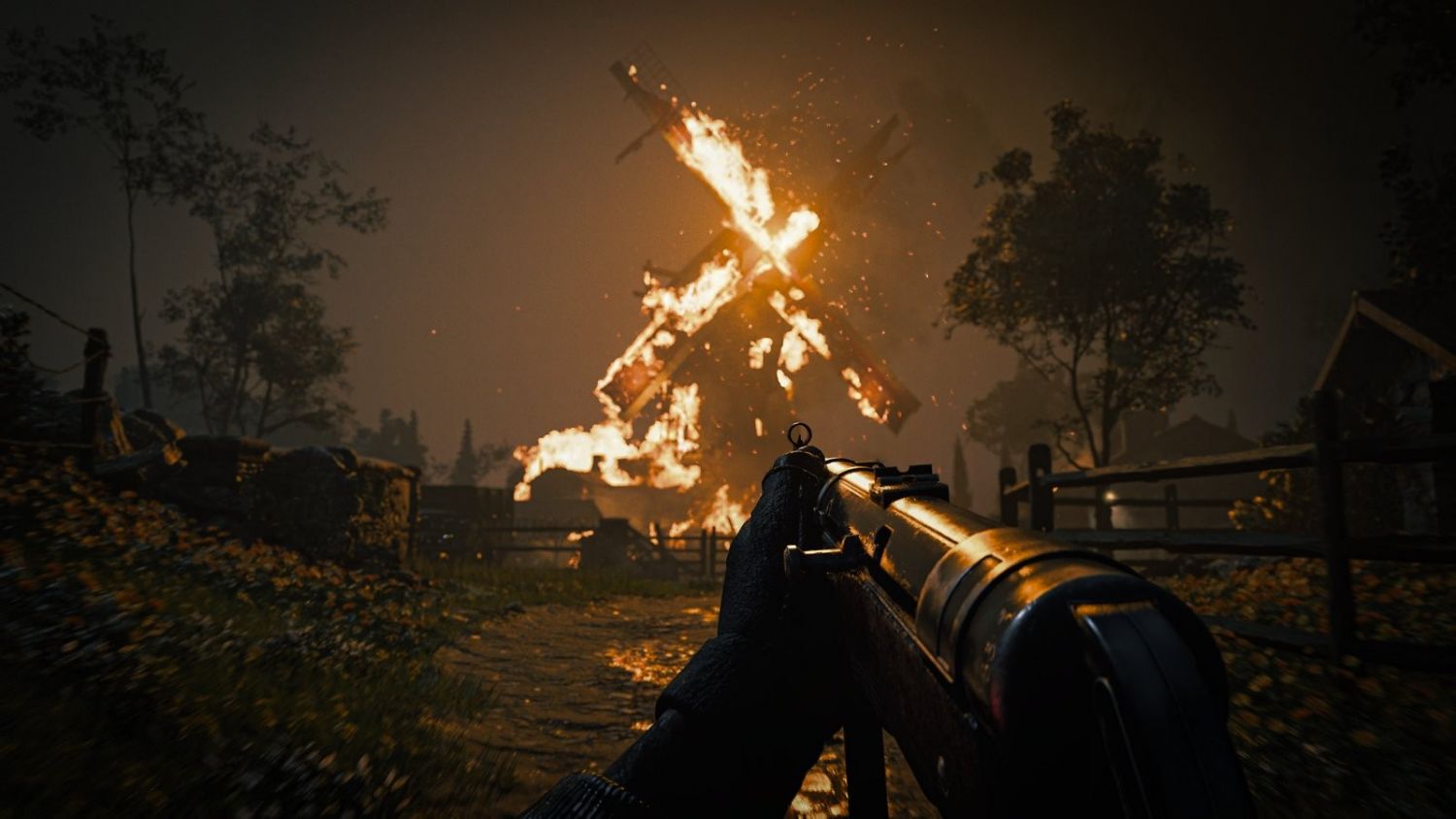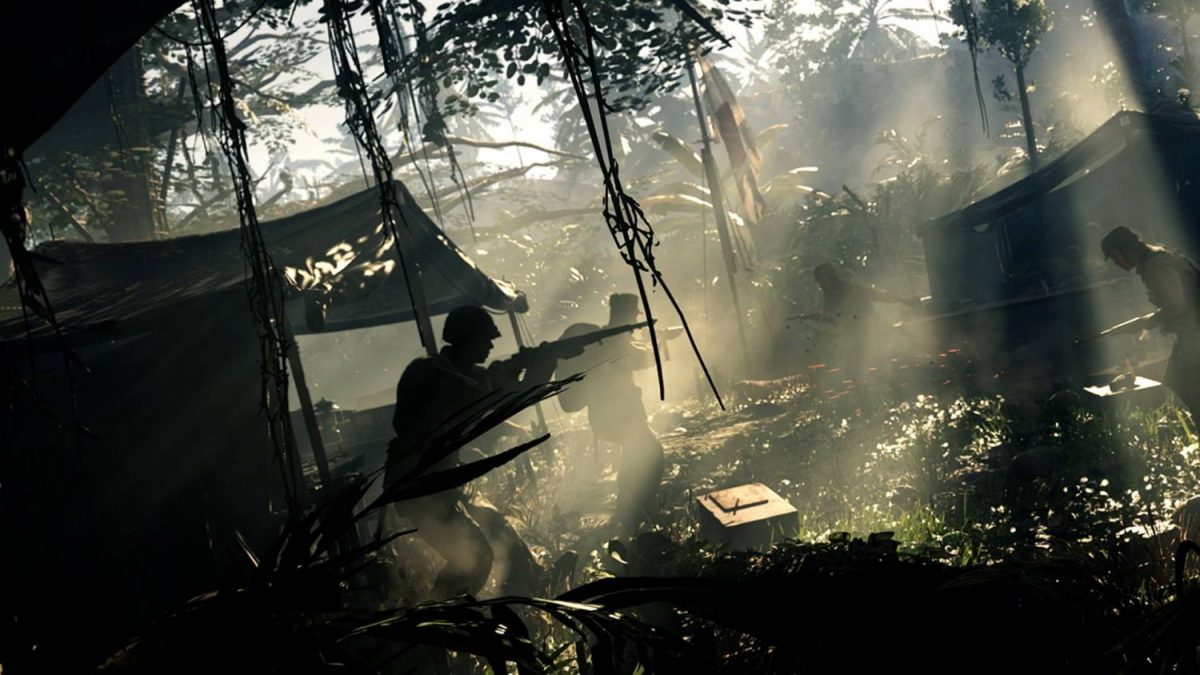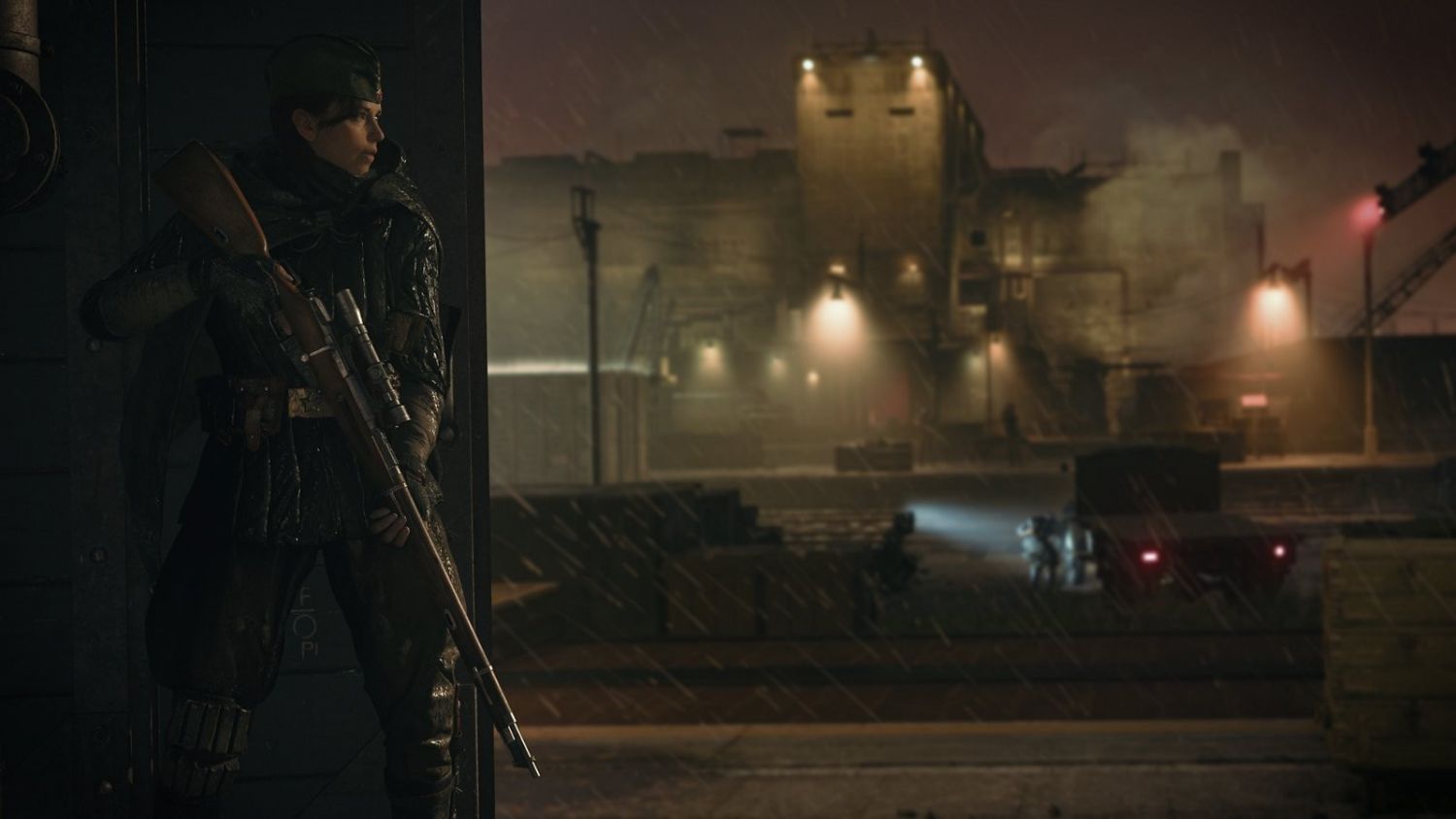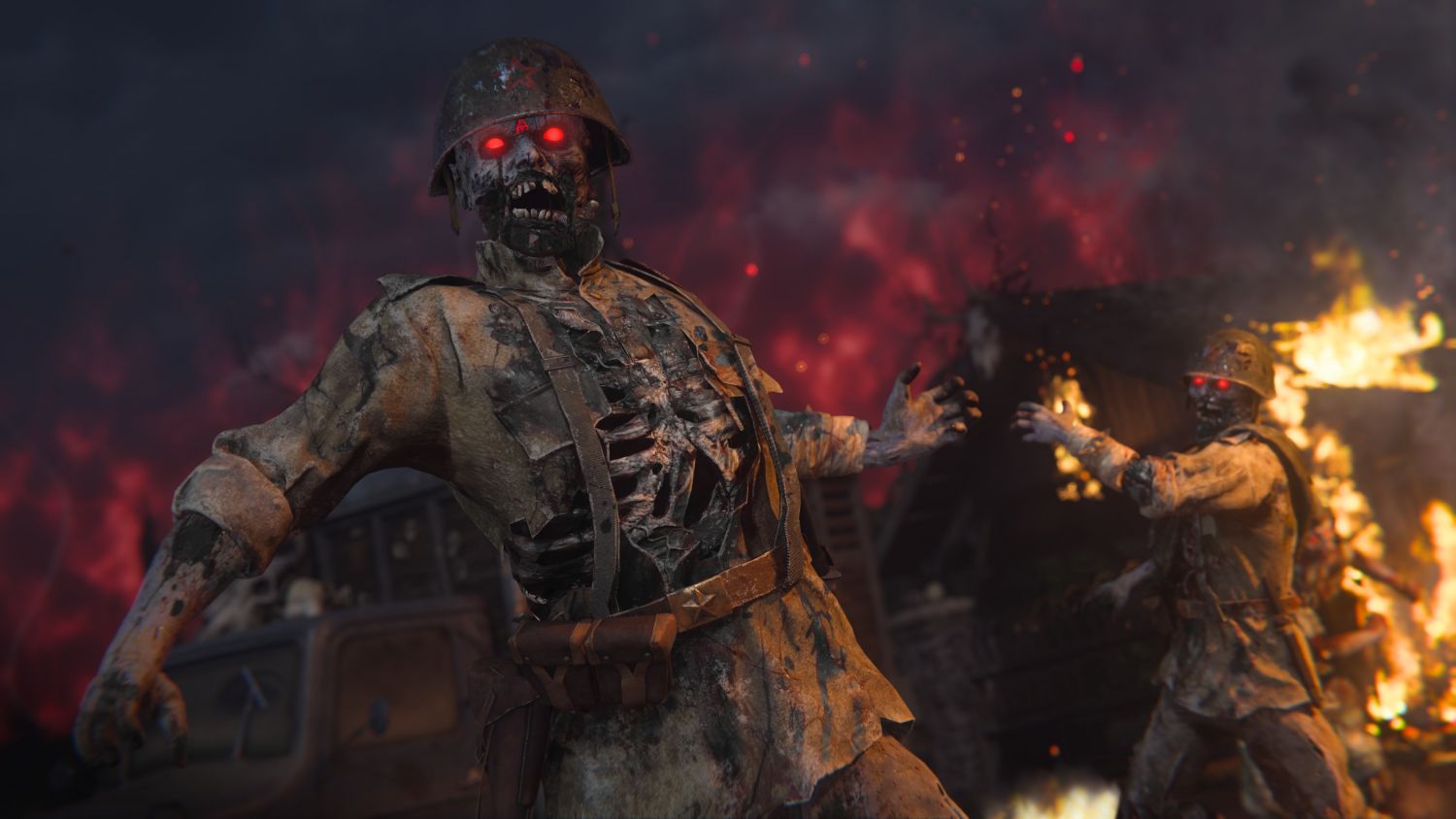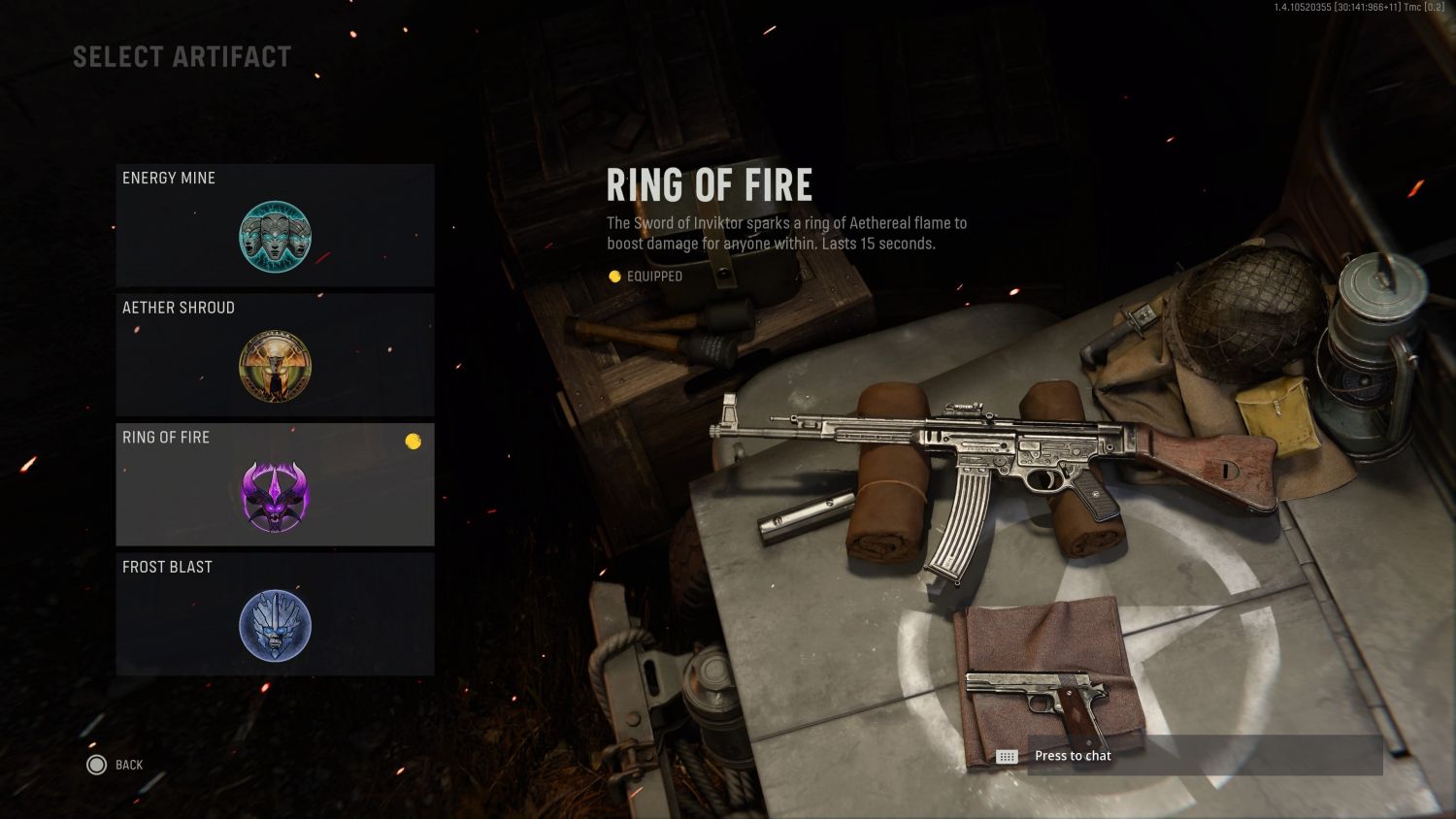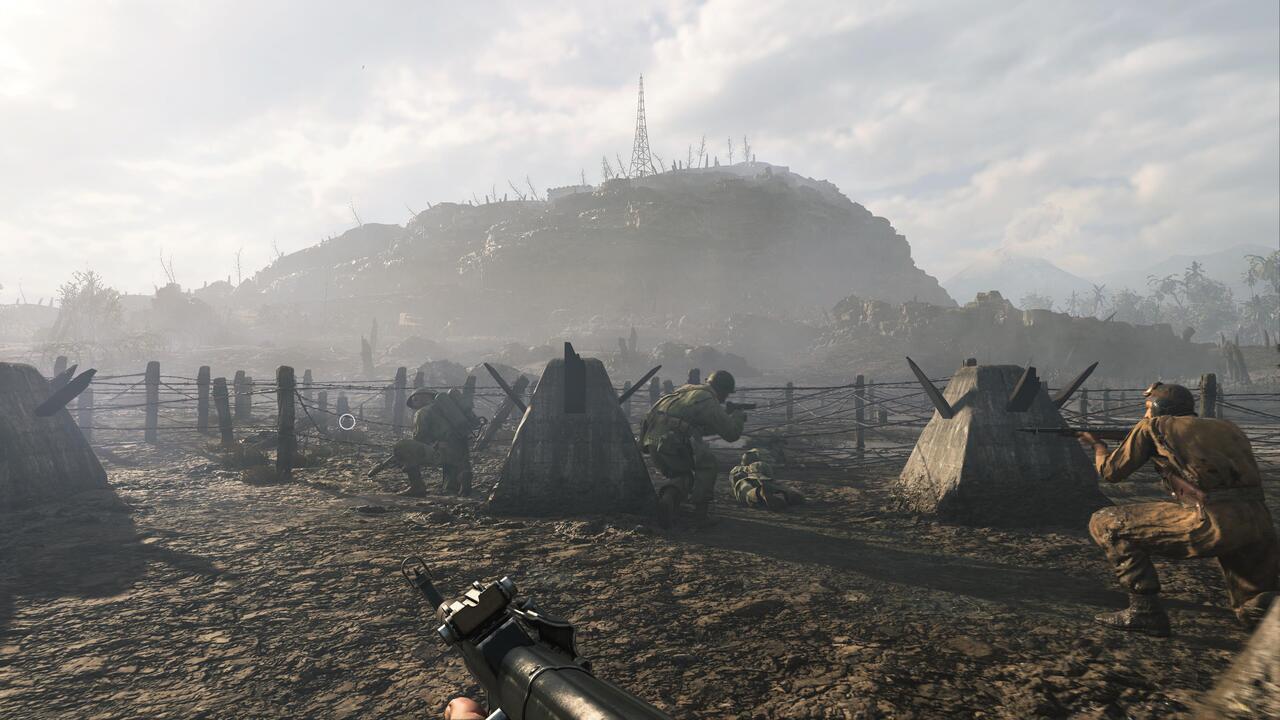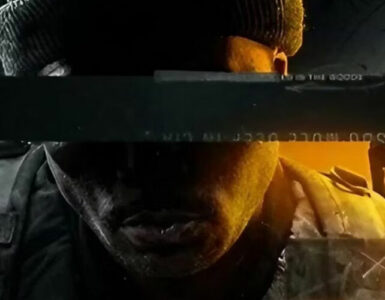Atrocious and disastrous as the real event was, it seems that video games have this intangible attraction to World War II, with Sledgehammer Games once again taking us back to the monumental conflict with Call of Duty: Vanguard.
In an era where things are often grey, it is comforting to engage in a conflict where we can agree on who’s wrong and who’s right, but in seeking such familiarity, a lack of freshness begins to bog down the first-person shooter juggernaut in its latest iteration.
As fans would know by now, Call of Duty games are broken down largely into three huge components – the campaign, multiplayer, and zombies. And as a whole package, Call of Duty: Vanguard can certainly do better in different areas, even for an annualised series.
Things predictably start off with a bang, as players are introduced to a crew of special forces operatives that have been chosen for a secret mission as the Reich’s end draws near. You hardly have time to catch your breath before the Nazi secret operation known only as Project Phoenix rears its ugly head.
With a more personalised take on a campaign, focusing on this group of soldiers would have been a great way to see the war from a different perspective, and provide the creative freedom in which Sledgehammer could add to the experience. Unfortunately, that never comes to pass.
Instead, our team is captured by the Nazis, and save for a mission or two, players are relegated to reliving flashbacks that act as the main content for the campaign. Although these various conflicts are by no means boring, with the team doing their best to liven up familiar scenarios with fresh elements, the cracking at the seams are more apparent this time around.
There is the standard D-Day mission, a trek through the desert, and more explosions than your favourite action movie. There are obvious standouts, such as experiencing Stalingrad before the Nazis came knocking, and the Battle of Midway, where aerial combat becomes the star at the cost of player control, but otherwise, it is standard fare.
The more damning element of the campaign probably lies in the fact that players hardly have time to spend working as a team of special forces operatives. Each of the characters has some depth to them, and the potential of players developing meaningful relationships with them seemed high, only for no chance of that happening due to the campaign setup.
Getting to know these operatives would have helped Call of Duty: Vanguard take a giant step towards adding another layer to WWII, but like the rest of the campaign, it is a missed opportunity that will make players think of what could have been for the likes of Petrova, Kingsley, Riggs, Jackson, and Webb.
Moving on from the disappointment of the campaign, multiplayer fares much better thanks to a series of changes and new features that improve the mode in both big and small ways.
Combat Pacing is a meaningful way for players to decide how they want their multiplayer time to be, adjusting player counts for the different modes. Tactical drops the overall number of players, allowing Call of Duty: Vanguard to be a more tactical affair, while Assault and Blitz will up the number of players for the shooter experience many are used to. Players can either let the game decide when and where to adjust Combat Pacing, or tweak things to suit their fancy at any given time.
As for the multiplayer modes, there is not much the community has not seen before. The standard Team Deathmatch and Domination modes are there, alongside a Gunfight variant that is called Champion Kill and the more dynamic and interesting Patrol mode.
The former sees teams of two or three battle it out in small skirmishes, starting teams off with the same loadout. The better you do, the more you can upgrade your weapons and equipment, which results in quicker engagements and an incentive to keep improving.
For the latter, it invites players to be more engaged and invested in the whole match. Rather than depend on a singular control point for capture and firefights, Patrol will shift the point around, requiring teams to constantly adjust and adapt. This competition is great fun and uses the chaos to great advantage, which is all that anyone playing Call of Duty: Vanguard would want.
The added destructibility to the various maps in multiplayer definitely adds to the experience, and while it does not come close to the levels seen in DICE’s Battlefield, it is more immersive to see the trail of destruction left behind after intense battles. The new approaches that are possible thanks to destroyed windows and walls also help to spice things up.
If you have always been a fan of Call of Duty and its multiplayer offerings, then Call of Duty: Vanguard will slot right home into the collection. The changes are welcomed, and Patrol mode is very enjoyable, but they do not switch things up sufficiently to truly make a huge impression, and gets into a similar malaise like the campaign, albeit to a lesser degree.
Finally, we arrive at Zombies mode. Completing the circle that started with the zombies’ first appearance in 2008’s Call of Duty: World at War, the undead has come home to roost in WWII yet again. However, unlike their first foray, the lack of significant content is yet another nail in the coffin for Call of Duty: Vanguard despite its place in the overarching narrative.
Transporting players into a completely different world full of the occult and undead madness, Der Anfang uses the central hub of Stalingrad to usher players into scenarios that have varying objectives to complete. You could find yourself in Paris taking on hordes of zombies in a bid to survive, or collecting runes to disable magical obelisks in another theatre of war.
Successful missions reward players with Cursed Hearts, which can then be spent to redeem powers that will complement your play style. These buffs, known as Covenants, allow players to essentially fill a role in a team, be it the tank, the healer, DPS, or as a more balanced member.
Add in ultimate abilities like an energy mine or an all-encompassing invisibility field, and it seems that Zombies has the ingredients for yet another awesome outing.
Sadly, the execution is far from ideal. The randomness of the various elements in Zombies means that a great run is largely down to the luck of the draw. Even with useful Covenants and abilities, upgrades for your weapons, you are going to be at the mercy of what drops for you out on the battlefields.
It would not be that bad if there were not just three objectives to accomplish and a distinct lack of variety in the zombie hordes. Once you are done with all the objectives, Stalingrad opens up more areas to venture into and repeat the cycle all over again. Sure, teams can push forward with escalating difficulty, but you probably would have seen everything there is to offer within the first two hours or so.
For a game mode that has always brought something unique to the table, Zombies in Call of Duty: Vanguard is as barebones as it can get. Players are not going to get surprised by the actual game mode, but more so by a missing endgame. Even with plans to further beef up this mode, the community might not care that much when something shinier comes up on the horizon.
For Call of Duty: Vanguard, Sledgehammer Games had plenty to do to impress fans, and it is clear that the game remains a work-in-progress. There are certainly changes that are great for the overall experience, as well as potential concepts that should have been explored further. Yet, instead of spearheading a bold new direction for the franchise, Vanguard finds itself in a rut, confined within a war that has seemingly been bled dry of inspiration.
Call of Duty: Vanguard is available on the Battle.Net Store for US$59.99.
GEEK REVIEW SCORE
Summary
Call of Duty: Vanguard depends too much on what fans have become accustomed to, with a lack of fresh ideas and significant changes becoming impassable roadblocks.
Overall
7.1/10-
Gameplay - 7.5/10
7.5/10
-
Story - 7/10
7/10
-
Presentation - 8/10
8/10
-
Value - 6/10
6/10

